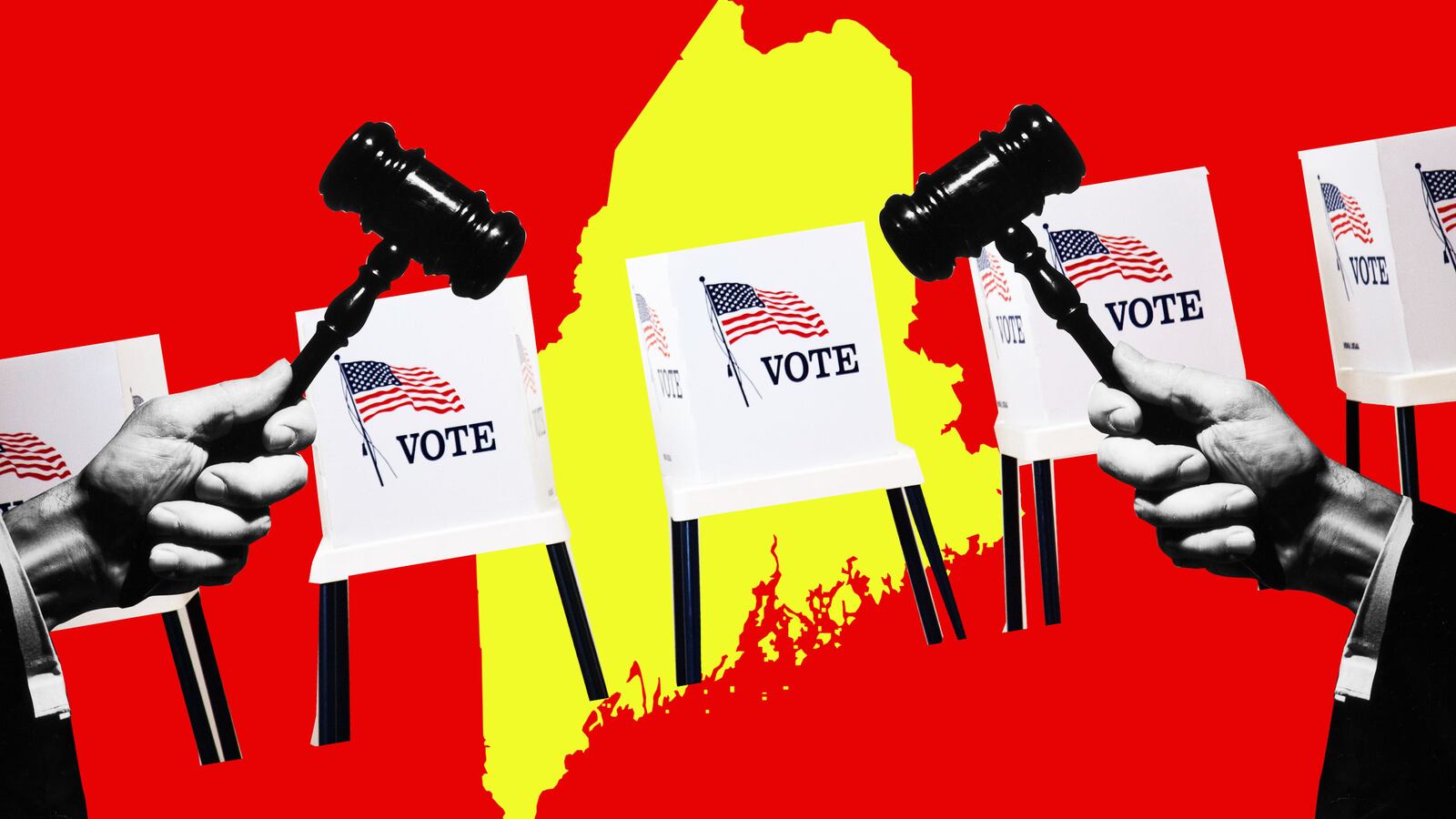In a little-noticed victory, Maine appears ready to move forward with innovative election reform—even as its politicians are dragged there kicking and screaming.
In 2016, the state’s voters enacted something called ranked choice voting. It is a radical rewrite of how elections happen, backed by voters after both Democratic and Republican legislators had refused to act. Heartwarming, yes?
Unfortunately, after a state Supreme Court ruling, Republicans moved to block the reform from taking effect. They had quiet help from some Democratic officials as well. So voters turned to something called a “people’s veto”—in this case, a veto of a move to effectively veto the citizens referendum.
On June 12, Maine will hold statewide primaries for governor and other offices using the new system. At the same time, voters will decide whether to move forward with the reform altogether. After a legal tangle, the secretary of state just published the new innovative ballots. It will either be a glorious reaffirmation of the people’s power to rule, or a fiasco. What’s at stake? In nearly all the United States, elections can be won by plurality, not a majority—and even if most people can’t stand the winner. We all tend to assume this is the only way to stage an election. In Maine, where there is an unusually strong tradition of independent candidates, eight out of the last ten governors were elected without a majority.
Ranked choice voting aims to solve this by letting voters indicate who their second choice is, and their third choice as well. Candidate Smith gets my number one vote. But candidate Jones gets my number two vote. Another gets my number three vote. Others get none at all. If one of the candidates wins a majority among the number one votes, election over. If not, officials add the second choice votes, and if necessary the third choice votes, until there is a majority. So a candidate with broad second place support can prevail. A version of this is used to pick sports MVPs and by the Academy of Motion Picture Arts and Sciences (as in, “I’d like to thank the Academy”), and in cities such as Minneapolis and San Fancisco.
Got all that? Let me confess: I work on democracy reform and constitutional law every day. I’ve always had a hard time fully understanding ranked choice voting, let alone being able to explain it. I always thought it was too complicated for voters to understand. Isn’t it hard enough to get voters to the polls without adding more math? But maybe that’s wrong. Voters understood it enough to pass it by ballot measure. Some credit goes to the embarrassing two terms of Gov. Paul LePage, a rancorous Republican who narrowly won a GOP primary, then slipped into office in a three-way race. LePage’s cringeworthy antics make Donald Trump look dignified. He told the NAACP to “kiss my butt,” and said a legislative foe had “give[n] it to the people without Vaseline.”
But more credit goes to a passionate citizens campaign ranging from the League of Women Voters to Nirvana bass player Krist Novoselic, who is, believe it or not, a major proponent of the reform nationwide.
Proponents hope it can dampen negative campaigning and tip candidates toward appealing to a broader base. As we’re all too aware, typically a candidate can win with a fierce claque of supporters, despite opposition by most voters. But under the new system, if you attack opponents too harshly, you lose the chance to get second or third choice votes from their supporters. One Rutgers survey found that voters in cities that used the new method were unusually satisfied with the tenor of campaigns.
So a lot is riding on the election in June. Recently Secretary of State Matt Dunlop published the ballots using the new rules, which seem clear enough. If Maine’s system is reaffirmed at the ballot box, and works well, we can expect it to spread to other states.
It’s all part of a democracy reform wave cresting across the country. In Michigan and possibly other states including Utah, Colorado and Missouri, ballot measures would establish nonpartisan commissions for legislative redistricting. In Ohio, Governor Kasich has worked with reformers to push a similar plan. A Florida ballot measure would end the state’s lifetime ban on voting for people with a felony conviction, restoring the right to vote to over one million people. New Jersey just became the twelfth state to enact automatic voter registration, which would add millions to the rolls nationwide. Americans sense their democracy needs repair.
Standing against that wave are politicians busily trying to entrench themselves. It’s brazen, to say the least, to snub the voters. Let’s hope Maine citizens do their duty and reaffirm their reform.
Michael Waldman, president of the Brennan Center for Justice at NYU School of Law, is author of The Fight to Vote.






